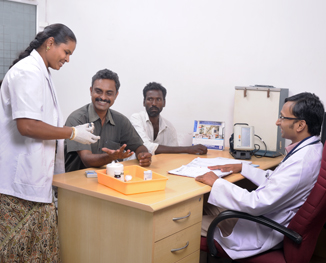Endocrinology & Diabetology
The department of Endocrinology & Diabetology at PSG Hospitals, which deals with the diagnosis and treatment of diseases related to hormones, including hypertension or high blood pressure, diabetes and high cholesterol, started functioning from February 16, 2013. At the time of its inception, it had four staff members including an assistant professor and two diabetes educators.
The department offers a comprehensive diabetic care facility under the able guidance of its head Dr R. Senthilkumar. The department now offers thyroid, obesity and pituitary clinics.
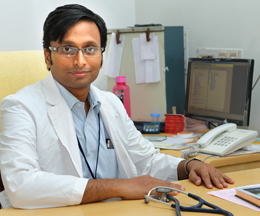 Dr R. Senthilkumar, Head of the Department of Endocrinology
Dr R. Senthilkumar, Head of the Department of Endocrinology
According to Dr Senthilkumar, endocrinologists strongly believe in “Ahimsa” and hence they desist from doing any invasive procedure. Within this short period, it has been able to attract about 50 to 60 outpatients per day, which is a proof of its excellent care.
The department in addition has also completed studies related to sleep duration and blood glucose values and this has been sent for publication. The establishment of a dedicated paediatric endocrine clinic and insulin pump clinic is planned for in the near future.
PAEDIATRIC ENDOCRINOLOGY
What is Pediatric endocrinology?
Pediatric endocrinology encompasses the study of hormones and their effects on a growing child , and the disorders resulting from their abnormal secretion. Pediatric Endocrinology is relatively a new sub speciality and especially in India it is still in its infancy.
Hormones are chemicals produced from endocrine glands situated in various locations in our body. They are essential for the growth and development (both physical and mental) of a child. A child grows to his/her genetic potential and matures into an adult on appropriate time, only if his/her hormone system works well. Hormones like Thyroxine and Growth hormone are vital in this process.
Other hormones like Insulin keep our blood sugar levels in good range. Decreased production of Insulin leads to a condition called Type 1 Diabetes that needs lifelong Insulin injections. Hormones are also essential to enhance the normal metabolism in the body.
What are the common pediatric endocrine disorders?
- Type 1 Diabetes Mellitus – A child with this condition has very minimal amount of a hormone called Insulin in his/her body, and needs lifelong Insulin injections 3-4 times every single day to keep their blood sugars under control
- Thyroid disorders – Congenital Hypothyroidism if not treated promptly can result in permanent neurodevelopmental disability
- Disorders of steroid hormone production eg : Congenital adrenal hyperplasia
- Disorders of bone and mineral metabolism eg: Vitamin D deficiency rickets
- Disorders of puberty Eg: Precocious and delayed puberty
Childhood obesity needs a special mention as most of the times it is because of imbalance between energy consumption and energy expenditure rather than any underlying hormone disorder. The management of childhood obesity falls in the domain of a pediatric endocrinologist along with other specialists.
Disorders like childhood obesity are public health problems. General misconceptions on children with Type 1 Diabetes are resulting in decreased quality of life for these kids. Lack of awareness on otherwise easily treatable condition like congenital hypothyroidism is resulting in mental subnormality and growth failure in scores of children
AIMS AND OBJECTIVES
“Pediatric Endocrinology” is being started with the primary intention of sharing concepts in basic pediatric endocrine principles to wider groups of individuals like health care professionals, parent groups, schools, and general public by various means available and raising public awareness on important conditions like Type 1 Diabetes, Congenital Hypothyroidism, and Childhood obesity.
Our idea is to implement this by having knowledge sharing sessions with health care professionals and students in training, conducting awareness meetings with general public and parent groups, efforts to destigmatize starting from places like schools, organizing public awareness campaigns using mass-communication systems like social and print media etc.
TYPE 1 DIABETES
Let’s share Knowledge
Nearly 100,000 children in India are affected by Type 1 Diabetes. Many more develop it every year. Insulin is a life saving drug for people with T1 diabetes ( Thanks to Dr Banting and Dr Best who discovered insulin)To have a healthy , normal life, these children need to check their blood sugars 3-4 times everyday and take Insulin injections 3-4 times a day, every single day of the rest of their lives. If they are given proper guidance and are allowed to treat themselves without being stigmatised, they can live as complete, healthy and happy life as any other child.
EDUCATION of self, of children and parents, of nursing professionals, of physician colleagues, of dieticians, of school teachers, and of all those people who play a role in the daily lives of a child with Type 1 Diabetes is the single most important factor that decides how well the child’s diabetes is controlled and conquered.
CORRECT THE MISCONCEPTIONS
- Diabetes in children is not the same as diabetes in adults.
- Nobody deserves to get T1 diabetes – it just happens.
- These children need support from family, friends, teachers and other care providers.
- Children with T1 diabetes can play sports, sing, dance just like any other child.
- These children do a lot to keep themselves well. The least we can do as a society is to “support them” where and when we can.
Speciality Clinics
- Comprehensive diabetes care clinic
- Obesity clinic
- Diabetic foot clinic
- Osteoporosis / Menopause clinic
- Paediatric Endocrine clinic/ Growth disorder clinic
Features
- Comprehensive diabetic clinic
- Diabetic education
- Continuous glucose monitoring system
- Insulin pump
- DEXA- scan for bone density
Diseases Treated
- Diabetes mellitus
- Thyroid disorder (Thyroid Swelling, Hyper and Hypothyroidism)
- Short Stature
- Obesity
- Delayed and Early Puberty
- Menopausal symptoms
- Metabolic bone disease (Calcium metabolism)
- Osteoporosis
- Excessive hair growth in women
- Adrenals problem (Cushing, cancer)
- Pituitary Problems
- Electrolyte imbalance (sodium and potassium metabolism)
- Secondary Hypertension
- Menstrual Irregularity(Amenorrhoea and Olgomenorrhoea)
- Abnormal genitalia
- Male sexual dysfunction
- Recurrent renal stones
Special Clinics
COMPREHENSIVE DIABETES CLINIC
Management of diabetes includes not only of blood sugar control but also complete evaluation of diabetes complications. In our clinic we evaluate for diabetic retinopathy, nephropathy and neuropathy with special focus on Diabetic foot evaluation. Our diabetic educator gives a clear idea about insulin administration, foot care, blood sugar monitoring and sick day protocols.
OBESITY CLINIC
Obesity in our country is increasing at epidemic proportions. In this clinic we evaluate the cause of obesity and plan for its management.








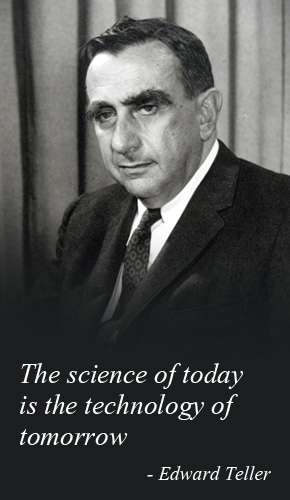
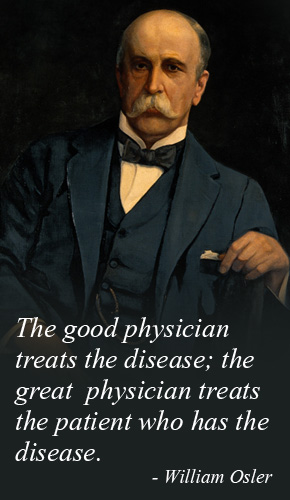
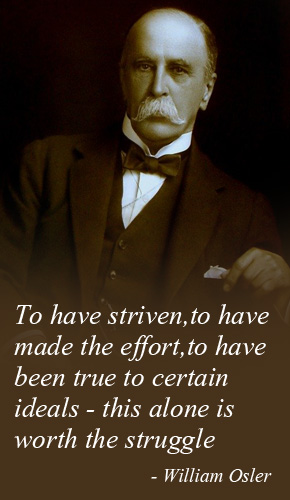



 Dr R. Senthilkumar, Head of the Department of Endocrinology
Dr R. Senthilkumar, Head of the Department of Endocrinology